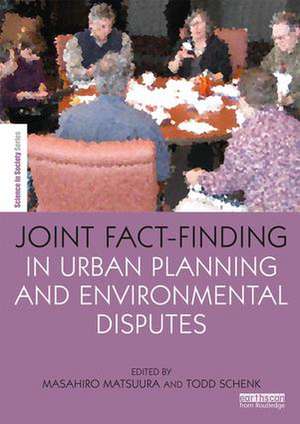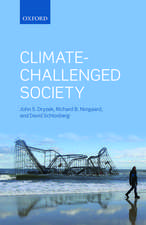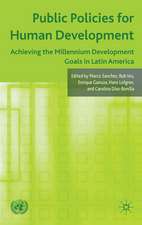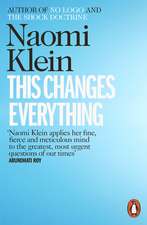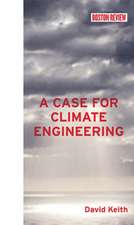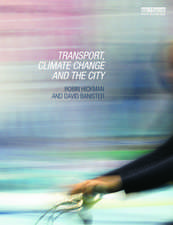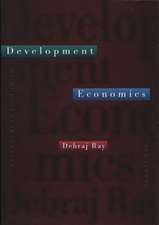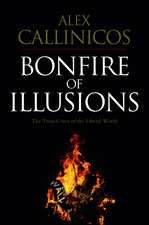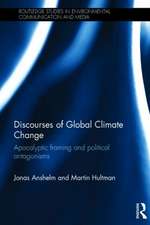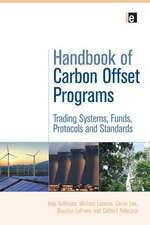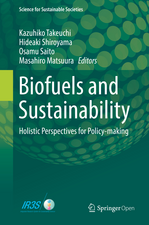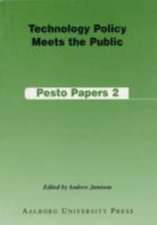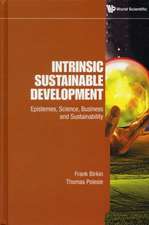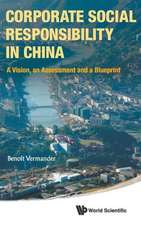Joint Fact-Finding in Urban Planning and Environmental Disputes: The Earthscan Science in Society Series
Editat de Masahiro Matsuura, Todd Schenken Limba Engleză Hardback – 26 sep 2016
This book examines how groups looking to plan and make decisions in any number of areas can wade through the imperfect and often contradictory information they have to make fair, efficient, wise and well-informed choices. It introduces an emerging and very promising approach called joint fact-finding (JFF). Rather than each stakeholder group marshaling the set of facts that best advance their respective interests and perspectives while discrediting the contradictory facts others provide, groups are challenged to collaboratively generate shared sets of facts that all parties accept. This book introduces readers to the theory of JFF, the value it can provide, and how they can adopt this approach in practice. It brings together writings from leading practitioners and scholars from around the world that are at the forefront of the JFF approach to science intensive policymaking, urban planning, and environmental dispute resolution. The first set of chapters outlines the concept of JFF, and situates it within other bodies of theory and practice. The second set of case-based chapters elucidates how JFF is being applied in practice.
This book delivers a new perspective to scholars in the field of public policy, urban planning, environmental studies, and science and technology studies, as well as public officials, technical experts, policy consultants, and professional facilitators.
| Toate formatele și edițiile | Preț | Express |
|---|---|---|
| Paperback (1) | 340.37 lei 3-5 săpt. | +18.31 lei 7-13 zile |
| Taylor & Francis – 26 sep 2016 | 340.37 lei 3-5 săpt. | +18.31 lei 7-13 zile |
| Hardback (1) | 999.46 lei 6-8 săpt. | |
| Taylor & Francis – 26 sep 2016 | 999.46 lei 6-8 săpt. |
Din seria The Earthscan Science in Society Series
-
 Preț: 340.37 lei
Preț: 340.37 lei -
 Preț: 340.37 lei
Preț: 340.37 lei -
 Preț: 198.19 lei
Preț: 198.19 lei -
 Preț: 488.29 lei
Preț: 488.29 lei -
 Preț: 382.75 lei
Preț: 382.75 lei -
 Preț: 456.06 lei
Preț: 456.06 lei -
 Preț: 424.58 lei
Preț: 424.58 lei -
 Preț: 418.67 lei
Preț: 418.67 lei - 18%
 Preț: 1017.91 lei
Preț: 1017.91 lei -
 Preț: 469.34 lei
Preț: 469.34 lei - 21%
 Preț: 378.39 lei
Preț: 378.39 lei -
 Preț: 412.37 lei
Preț: 412.37 lei -
 Preț: 449.41 lei
Preț: 449.41 lei -
 Preț: 469.34 lei
Preț: 469.34 lei - 12%
 Preț: 299.52 lei
Preț: 299.52 lei - 13%
 Preț: 333.12 lei
Preț: 333.12 lei -
 Preț: 416.22 lei
Preț: 416.22 lei -
 Preț: 413.33 lei
Preț: 413.33 lei -
 Preț: 116.59 lei
Preț: 116.59 lei -
 Preț: 411.42 lei
Preț: 411.42 lei - 22%
 Preț: 332.02 lei
Preț: 332.02 lei - 15%
 Preț: 463.46 lei
Preț: 463.46 lei -
 Preț: 444.62 lei
Preț: 444.62 lei - 18%
 Preț: 1001.87 lei
Preț: 1001.87 lei - 18%
 Preț: 1114.64 lei
Preț: 1114.64 lei -
 Preț: 392.24 lei
Preț: 392.24 lei -
 Preț: 390.54 lei
Preț: 390.54 lei -
 Preț: 357.43 lei
Preț: 357.43 lei - 18%
 Preț: 1054.71 lei
Preț: 1054.71 lei -
 Preț: 444.62 lei
Preț: 444.62 lei - 18%
 Preț: 1278.88 lei
Preț: 1278.88 lei - 26%
 Preț: 764.20 lei
Preț: 764.20 lei
Preț: 999.46 lei
Preț vechi: 1218.86 lei
-18% Nou
Puncte Express: 1499
Preț estimativ în valută:
191.24€ • 199.67$ • 158.28£
191.24€ • 199.67$ • 158.28£
Carte tipărită la comandă
Livrare economică 04-18 aprilie
Preluare comenzi: 021 569.72.76
Specificații
ISBN-13: 9781138120174
ISBN-10: 1138120170
Pagini: 234
Ilustrații: 29
Dimensiuni: 156 x 234 mm
Greutate: 0.43 kg
Ediția:1
Editura: Taylor & Francis
Colecția Routledge
Seria The Earthscan Science in Society Series
Locul publicării:Oxford, United Kingdom
ISBN-10: 1138120170
Pagini: 234
Ilustrații: 29
Dimensiuni: 156 x 234 mm
Greutate: 0.43 kg
Ediția:1
Editura: Taylor & Francis
Colecția Routledge
Seria The Earthscan Science in Society Series
Locul publicării:Oxford, United Kingdom
Public țintă
PostgraduateCuprins
Foreword , Introduction Theory and Practice of Joint Fact-Finding 1. Joint Fact-Finding and Collaborative Adaptive Management 2. Humble Inquiry: The Practice of "Joint Fact Finding" 3. Role of Science in Environmental Dispute Resolution 4. Science and Policy: Better Decisions through Join Fact-Finding and Collaboration 5. Implications of JFF to Science–Policy Interface 6. Emerging Practice for Adaptive Governance 7. Energy Policy Cases 8. Nuclear Power Joint Fact-Finding 9. Environmental Cases 10. Water Resource Cases 11. Joint fact-finding in Japan 12. Joint fact-finding in Netherlands/Europe 13. Conclusion
Cover image kindly provided by Dr. Peter Adler
Cover image kindly provided by Dr. Peter Adler
Notă biografică
Masahiro Matsuura is a Professor at the Graduate School of Governance Studies, Meiji University, Japan. He is also the head of Democracy Design Lab., a not-for-profit organization for promoting democratic engagements in Japan, and one of the co-founders of Consensus Building in Asia, a network of practitioners and scholars interested in collaborative processes in Asia. He received his doctoral degree from the Massachusetts Institute of Technology with a focus on urban studies and public policy in 2006. His publications include Jissen-Kosho Gaku ("Practical negotiation theory" in Japanese: Chikuma Publishing), Localizing Public Dispute Resolution in Japan (VDM-Verlag), and Using Assisted Negotiation to Settle Land Use Disputes (Lincoln Institute of Land Policy, co-authored with Larry Susskind and Ole Amundsen). His research interests include the theory and practice of consensus building, negotiation, and deliberative democracy in the urban and environmental planning sectors particularly in the Asian context.
Todd Schenk is an Assistant Professor in the Urban Affairs and Planning Program of the School of Public and International Affairs at Virginia Tech, USA. He holds both a Ph.D. in Public Policy and Planning and a Master in City Planning from the Massachusetts Institute of Technology, and a B.A. from the University of Guelph. Todd has extensive research and consulting experience working on environmental policy and planning and collaborative governance issues in North America, Europe, Asia, Africa and the Middle East. His current work focuses on the adaptation of infrastructure to climate change, and community involvement in public sector decision-making. He is particularly focused on tools for collaboratively managing uncertainty and making decisions in situations with high degrees of complexity, dynamic conditions, and institutional ambiguity. Todd regularly employs serious games as a means to engage stakeholders in action research.
Todd Schenk is an Assistant Professor in the Urban Affairs and Planning Program of the School of Public and International Affairs at Virginia Tech, USA. He holds both a Ph.D. in Public Policy and Planning and a Master in City Planning from the Massachusetts Institute of Technology, and a B.A. from the University of Guelph. Todd has extensive research and consulting experience working on environmental policy and planning and collaborative governance issues in North America, Europe, Asia, Africa and the Middle East. His current work focuses on the adaptation of infrastructure to climate change, and community involvement in public sector decision-making. He is particularly focused on tools for collaboratively managing uncertainty and making decisions in situations with high degrees of complexity, dynamic conditions, and institutional ambiguity. Todd regularly employs serious games as a means to engage stakeholders in action research.
Descriere
This book examines how groups looking to plan and make decisions in any number of areas wade through the imperfect and often contradictory information they have to make fair, efficient, wise and well-informed choices. An emerging and very promising approach called joint fact-finding (JFF) can help. Rather than each stakeholder group marshalling the set of facts that best advance their respective interests and perspectives while discrediting the contradictory facts others provide, groups are challenged to collaboratively generate a shared set of facts that all parties accept. This book introduces readers to the theory of JFF, the value it can provide, and how they can adopt this approach in practice. It brings together writings from leading practitioners and scholars from around the world that are at the forefront of the JFF approach to science intensive policy making, urban planning, and environmental dispute resolution.
